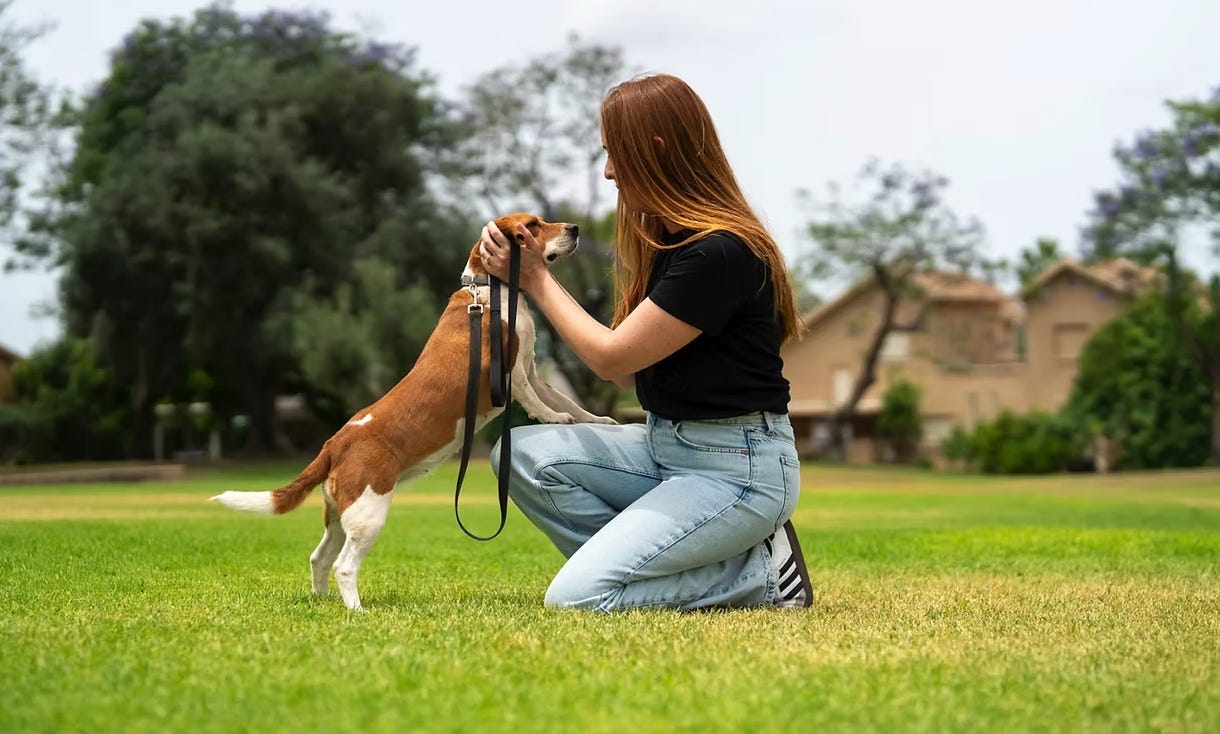SpotitEarly launches with $20m funding to advance 'dog-powered' breast cancer detection breath test
94% accuracy rates in initial clinical trials
A start-up developing the first at-home breath test for breast cancer, using AI and dogs' sense of smell to “sniff out” cancer in its earliest stages has launched in the U.S with a $20.3 million funding and the opening of its Series A round.
SpotitEarly has already attracted investments from venture capital firms and angel investors, including Hanaco VC, Menomedin VC, Jeff Swartz (former CEO of Timberland), Avishai Abrahami (CEO of Wix.com), and others. In addition to private funding, SpotitEarly has also been awarded several grants, most notably from the BIRD Foundation, a binational foundation that funds joint industrial research and development between American and Israeli companies.
The power of dogs
The SpotitEarly test aims to catch the four most common types of cancer - breast cancer, colorectal, prostate and lung. An initial two-year clinical study published in Nature involved 1,400 people and demonstrated a 94% accuracy rate.
The test works as simple breath collection process via a face mask kit. From there, the levels of ‘volatile organic compounds’ in the breath sample is analyzed using the scent detection of trained dogs, followed by SpotitEarly’s own LUCID AI technology which analyzes data points and interprets the dogs’ behavioural signals.
SpotitEarly says that the daily sniffing capacity of dogs is huge and it takes a dog just 500ms to ‘clear’ a sample. It estimates that a single lab facility staffed by its (dogs is designed to deliver over 1 million tests per year, enough to cover the needs of a 4 million population of adults aged 40+ designated for testing as per cancer screening guidelines.
The test will be commercially available in 2026.
“While there has been movement from emerging tech companies that have shown great promise for transforming the way we screen and detect cancer, they’ve lacked accessibility and precision,” said Shlomi Madar, Ph.D., CEO of SpotitEarly.
”The opportunity to bring SpotitEarly’s innovative tech and dynamic approach to the U.S., and to drastically improve how we conquer a complex and persistent disease that takes the lives of millions of Americans each year, is both a great honor and responsibility.”
The most common form of cancer in American women
In 2025, it's estimated that an additional 316,950 women in the United States will be diagnosed with breast cancer, making it the most common form of cancer in American women. Doctors have traditionally recommended that women self-examine using their hands to feel for lumps. However, research has shown no significant diagnosis improvements from self-screening, and the American Cancer Society no longer believes self-exams are reliable.
As a result, women are left looking for an easy-to-use, convenient screening option without having to resort to uncomfortable mammogram appointments, ultrasounds, or invasive biopsies.
“Early detection can increase survival rates to as high as 99 percent and save billions in treatment costs to the medical system,” said Alon Lifshitz, Founding Partner at Hanco Ventures. “That’s exactly what makes SpotitEarly stand out. Today’s screening methods are often invasive, expensive, and uncomfortable - barriers that limit adoption. SpotitEarly is filling a critical gap in preventative healthcare with a solution that is non-invasive, affordable, and designed to help more people benefit from early detection.”
A U.S launch
As SpotitEarly launches into the U.S., it has forged research partnerships with major U.S.-based academic medical centers. Additionally, the company has added U.S.-based advisors to its scientific board, including Dr. Len Lichtenfeld, who previously served as the Deputy Chief Medical Officer of the American Cancer Society and will now take the role of Chief Medical Officer at SpotitEarly.
SpotitEarly says its tests are not intended to replace current screening procedures, but rather to be used as an additional pre-screening layer to complement preventative protocols already in place.
The SpotitEarly tests will now need to be approved by the Food and Drug Administration (FDA) in advance of commercial availability and are currently under development and validation.



